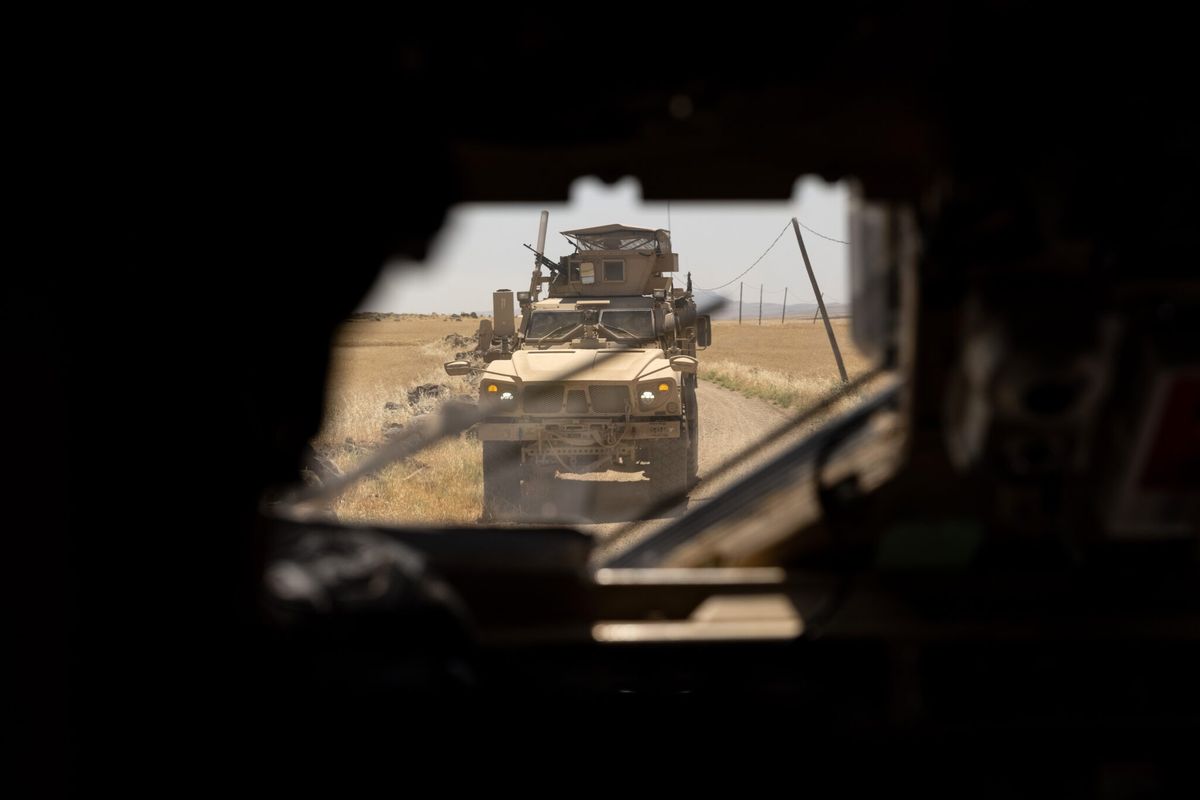The Mosul operation, launched on October 17, has once again highlighted the complicated nature of Turkey’s involvement in the fight against the Islamic State (IS). Ahead of the offensive, Turkish President Recep Tayyip Erdogan made repeated appeals for Turkish troops to partake in the operation, warning against the liberation of the majority Sunni city by Shiite forces and raising concerns about Baghdad’s sectarian policies. As tensions between Ankara and Baghdad continue to rise, compounded by the escalation of the Turkish-Kurdish conflict, the success of anti-IS operations in Iraq and Syria depends increasingly on the United States' ability to manage its makeshift alliances.
Turkey has a significant footprint in and around Iraq. The Bashiqa base, in close proximity to Mosul, hosts Turkish troops, tanks, and howitzers, and provides training to the Kurdish Peshmerga and al-Hashd al-Watani, which mainly consists of Sunni Arabs loyal to the former Nineveh governor, Atheel al-Nujaifi. Despite Baghdad’s opposition to the presence of Turkish troops in Iraq, Ankara has announced that it will not leave Bashiqa, and there have been rumors of additional Turkish troop deployments to the base.
In addition to the Bashiqa base, Ankara has other assets that it frequently exploits to plot a course of action often at odds with the coalition’s anti-IS operations in Syria and Iraq. Turkey hosts Incirlik Airbase, which provides American and other allied planes quick access to the Middle East, and provides a lifeline to the Kurdistan Regional Government (KRG) through the Habur border gate and pipeline to the port of Ceyhan, which it then uses for leverage in intra-Kurdish affairs in the region. Furthermore, Ankara’s refugee deal with the European Union allows it to extract concessions from the West. So far, Erdogan has managed to use these factors to mute Western criticism of his heavy-handed tactics at home and intractable policies abroad.
Erdogan’s situation is trickier on the home front. Although the Turkish president has used the July 15 abortive coup to crack down on all opposition and consolidate his one-man rule with the help of draconian state of emergency decrees, he is worried about the domestic repercussions of the Mosul operation. The Turkish public is sensitive about the status of Mosul, both because the city was perceived to be part of the Turkish “homeland” until 1926 and because of the precarious status of its Turkmen population. Knowing this, Erdogan has lately been fanning the flames of jingoism and irredentism to unite nationalist voters behind his dream of a centralized presidential system. Erdogan, however, is also aware that the loss of Sunni Arab and Turkmen influence to Shiite Arab or Kurdish forces in liberated Mosul and its environs could be viewed as a defeat, triggering an electoral backlash. Thus, what appears to be a convenient rallying point for Erdogan also happens to be his soft underbelly.
To alleviate such risk, Erdogan has searched for opportunities to join the Mosul operation and insisted that “Turkey will be at the table,” but to no avail. Turkish officials were taken to making various claims that Turkish jets and tanks have taken part in the offensive, which the Iraqi military denied shortly thereafter. Turkish Prime Minister Binali Yildirim later retracted his statement about the participation of the Turkish Air Force, while the use of tanks and howitzers appears to be limited to sporadic shelling of IS positions from the Bashiqa base. For the time being, the propaganda value of apparent Turkish participation, amplified through government-controlled media at home, is deemed more important than Turkey’s actual involvement.
The situation of Iraq’s Turkmen, however, is much more complicated than would appear from Erdogan’s statements. The Turkmen, historically divided into Shiite and Sunni groups, have expressed concerns about Turkey’s neo-Ottoman rhetoric and involvement in Iraq for fear of sectarian blowback exacerbating tensions within their community. This is particularly the case in cities such as the majority Sunni Turkmen Tal Afar, which once used to be home to a large number of Shiite Turkmen who would now like to return with the help of Shiite militias. This is one of the reasons behind Turkey’s insistence that the city should not be liberated by Shiite militias of al-Hashd al-Shaabi.
Much of Turkey’s warnings about Baghdad’s sectarian policies over the years have been astute, though its own brand of Sunni sectarianism and hostile rhetoric undercut its message. In contrast, a Turkey committed to secular values, democratic governance, and constructive dialogue could have offered a viable model and played a crucial role in helping Iraq build pluralistic democracy and inclusive institutions. Sadly, Ankara has instead become yet another catalyst for sectarian polarization and intercommunal tensions in Iraq.
Turkey, with its Incirlik airbase, lifeline to the KRG, and military presence in Bashiqa, continues to be a heavyweight that no player can ignore in the Iraqi scene. Regrettably, having lost its moral high ground alongside its transatlantic values and orientation, Ankara today is less a force to cooperate with than it is a problem to be managed for its allies. Erdogan’s Turkey will continue to matter greatly for the future of Iraq and for U.S. policy in the Middle East, yet increasingly for the wrong reasons.












